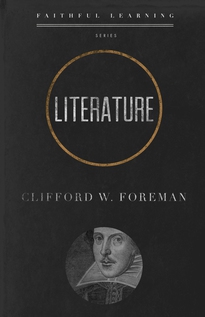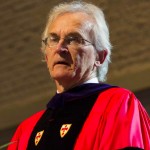This week’s author interview is with Clifford Foreman, author of Literature in the Faithful Learning series.
- What was your purpose in writing this?
I hope that I can convince some people that, for a number of reasons, it is important for Christians to study literature. Certainly reading great works teaches us to use the language better ourselves. It also can help us to understand the Bible better. Beyond that, we can experience the sheer delight that comes from beautifully arranged words. That delight reflects the way God created us as human beings.
- What works of literature did you concentrate on and why?
I teach American literature, so I decided to stick to American writers mainly. Of course, our tradition is rooted in the English tradition, and I have taught British novels, Romantic and Victorian poetry, Shakespeare–but particularly in the twentieth century, American writers emerged as leaders in the literature of the world. So the two works I give the most attention to are a poem by Frost and a passage from Fitzgerald’s The Great Gatsby. In my mind, Fitzgerald and Frost are two of the greatest writers in our American tradition and in the twentieth century–even though neither won the Nobel Prize, and Eliot, Faulkner, and Hemingway did.
- Though you defend reading works by secular writers, do you see any dangers in it?
Certainly–there is always danger in paying attention to the ideas and feelings of our unbelieving neighbors. Spending our lives reading their works is like living on the border of the Kingdom of God, rather than moving inland. But if we are going to speak to those outside, we have to speak their language, we have to be part of that world and to learn to live in it well. Also, though, our neighbors are gifted and those gifts were given to them by our Heavenly Father. We should be able to appreciate their work and praise the one who enabled it at the same time.
- What do you think about the state of reading and writing in our culture?
There certainly are threats to reading and writing. The resurgence of the visual element in communication sometimes seems to have handicapped people in their ability to argue. Many students concentrate on developing their visual abilities and ignore the importance of the language. That’s true of Christians as well. When I tell my students that I think their abuse of the language is a sin, they laugh. We should be thinking God for our language continually. But in many ways the internet, smart phones, and email have led people to write and read more. Many of our children have developed agile and eloquent thumbs. And book clubs are springing up like dandelions; people are reading novels as well as seeing the movies made from them. It’s important that while, on the one hand, we enjoy the blessings of the new media, we hold onto the language with the other.



Comments